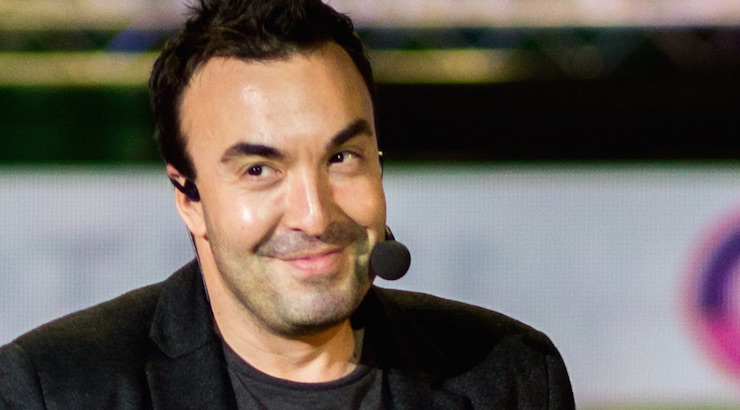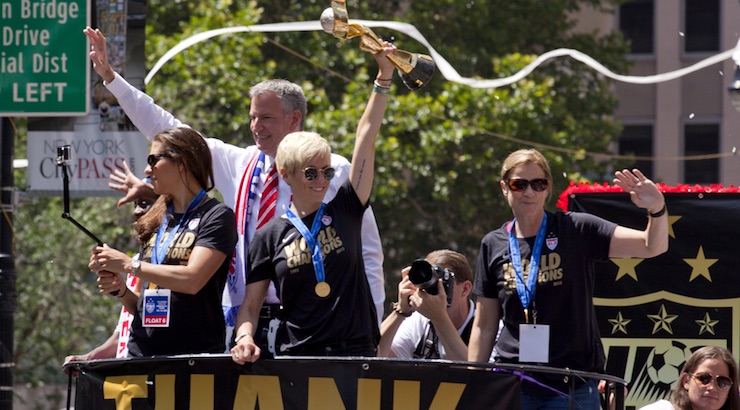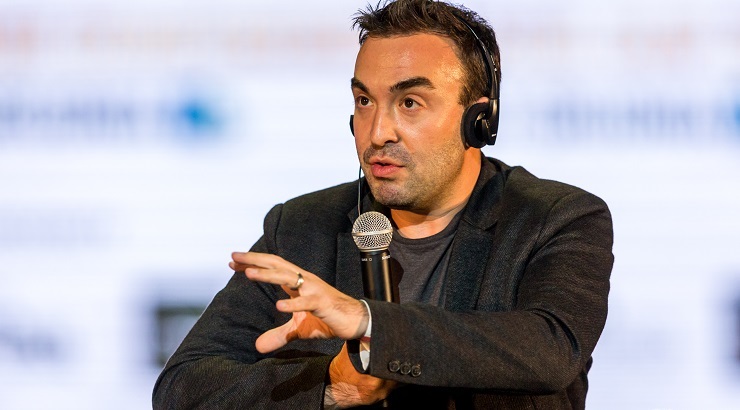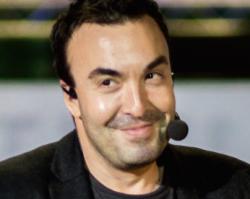Training The Soccer Brain: Guide To Improving Your Soccer Game
Champions in sport are restless. They want to get better, they want to improve their skills. This, in part, is what makes them a champion. They’re not interested in staying at the same level as they’ve always been, they avoid the negative trap of complacency. They fight the plateau.
A global sport psychologist and author specializing in soccer, Dan Abrahams is based in England and works with hundreds of professional soccer players – many of whom play in the English Premier League (EPL).

Abrahams knows what it takes to be successful and is paid to give pros advice. Working with professionals from Crystal Palace, QPR, Fulham, and West Ham United, among other clubs, Abrahams works quietly, behind the scenes with the top coaches and professional soccer players. Here is Abrahams’ advice — on how to improve your game and be your best on the soccer pitch.

Champions in sport are restless. They avoid the negative trap of complacency. They fight plateau. I want this attitude for all soccer players. I want you to focus on improving your skills. I want you to be passionate about getting better.
Here is my four step guide to help you improve your soccer game:
Step #1: Profile the Next Level
What does a more skilful version of you look like?
To answer this question I’d like you to have a think about a better version of you. Get a really vivid picture on your mind of how you’d be playing if you were a level above where you are now. I call this profiling the next level. I dedicate a whole chapter to this activity in my new book Soccer Tough 2. During this chapter I ask the reader to break down his or her game and compile a list of the areas they need to improve.

Here’s some examples:
- I need a better first touch and an improved body shape when receiving the ball to have time to make better decisions.
- I need more accurate shots to help me score more
- I need to become more aware of what’s going on around me – to see the position of team mates and the opposition quicker – I need to check my shoulders more
It’s vital to be specific when deciding what needs to be better. Can you see from my examples how specific they are? They’re not general like “I need to make better decisions”. They’re broken down into tiny habits that need to improve.
To help you profile the next level I’d like you to pick a player you admire. It might be someone who is world class or it might be someone who is your team or in your soccer club. It doesn’t matter. The main thing is that you choose someone who is more accomplished than you at specific skills that you would find useful to improve. Use this person as you soccer model. You can learn a lot from them.
Step #2: Get Out Of Your Comfort Zone
Once you’ve chosen the specific skills you want to improve then it’s time to go work on them. This can be very challenging.
It’s not easy to improve. Too many soccer players train and practice in their comfort zone. They may train with intensity, but they don’t necessarily train with an eye on improvement.
Getting more skilful requires a soccer player to come away from the security of comfort zone. It requires a look at ugly.
Let me explain. A soccer player who is really passionate about developing his or her game, has to go into training placing their focus on the specific skills they want to improve.

For example, if a soccer player wants to improve her body positioning as a defender, she has to become very conscious of the positions she gets herself into. Then she has to deliberately and intentionally adopt the body positions she wants.
To do this she has to risk feeling uncomfortable. She has to take her mind slightly away from the ball and be conscious of the body shape and body position she tends to adopt and then consciously change it if necessary.
This is tough to do, right? And it’s a risk to do it because you might make yourself look foolish in training. Which leads me to my next tip.
Step #3: Be Honest – Painfully Honest
Tell your coach that this is what you’re doing.
“Coach, I’m trying to become more conscious of my body positioning in defensive positions. If I make a few mistakes it’s not because I’m playing poorly or because I’m not listening. I really want to improve this area as I know I’ll become a better player.”
I think your coach will surprise you. I think your coach would love to hear this kind of comment.
I’m sure your coach will forgive the odd mistake (most should anyway) if you tell them you’re consciously working on an area of your game in training.
Tell them that the changes you’re making feel a bit uncomfortable. Tell them that you’re trying to get rid of some habits that are holding you back. Be honest. See what they say. Then…
Step #4: Get Feedback
Use your coach (and others) to get feedback. You’ll speed up the process of improvement if you do. You can’t see yourself play — so you can only guess how well you’re doing your new skill. Use video if you can, if you’re allowed to or if it’s a resource available to you. Video is a very powerful tool to provide insight into what you do on the field.

Ask your coach to give you a mark out of 10 for how well you executed your new skill. Ask them what they saw that helped them arrive at their figure. For example, if they give you 8/10 then why so high? What was good and what worked? And then ask them how you can do even better next time.
Can you see how doing this can help you have a really good relationship with your coach?
Not only will this process help you have some great conversations with your coach about your game, it will also demonstrate your passion for improvement. It will show your coach that you’re taking charge of the improvement process as a player.
Finally, Persist
I want you to persist. Persist, persist, persist. Keep going and carry on.

It’s tough to improve your skill level. It’s challenging to change your body shape, your movement patterns, you ball control, your footwork, your game understanding, your passing, shooting and tackling. It’s difficult to be a better, more dynamic player.
But that’s the challenge that stands in front of you if you want to be a better soccer player. If you want to play the soccer of your dreams. You gotta hustle. You gotta focus. Your gotta come out of your comfort zone.
But believe in yourself. As I say to all my soccer clients across the world. It’s your duty to be a no limit soccer player. You gotta think, you gotta train, you gotta play like there are no limits to your ability.

Related Articles: Dan Abrahams on SoccerToday
Photo Credit – Marco Iacobucci EPP / Shutterstock.com – SAINT DENISE- FRANCE, JUNE 2016 : Sergio Ramos in action during football match of Euro 2016 in France between ITALY VS SPAIN at the Stade DE FRANCE on June 22, 2016 in SAINT DENISE







